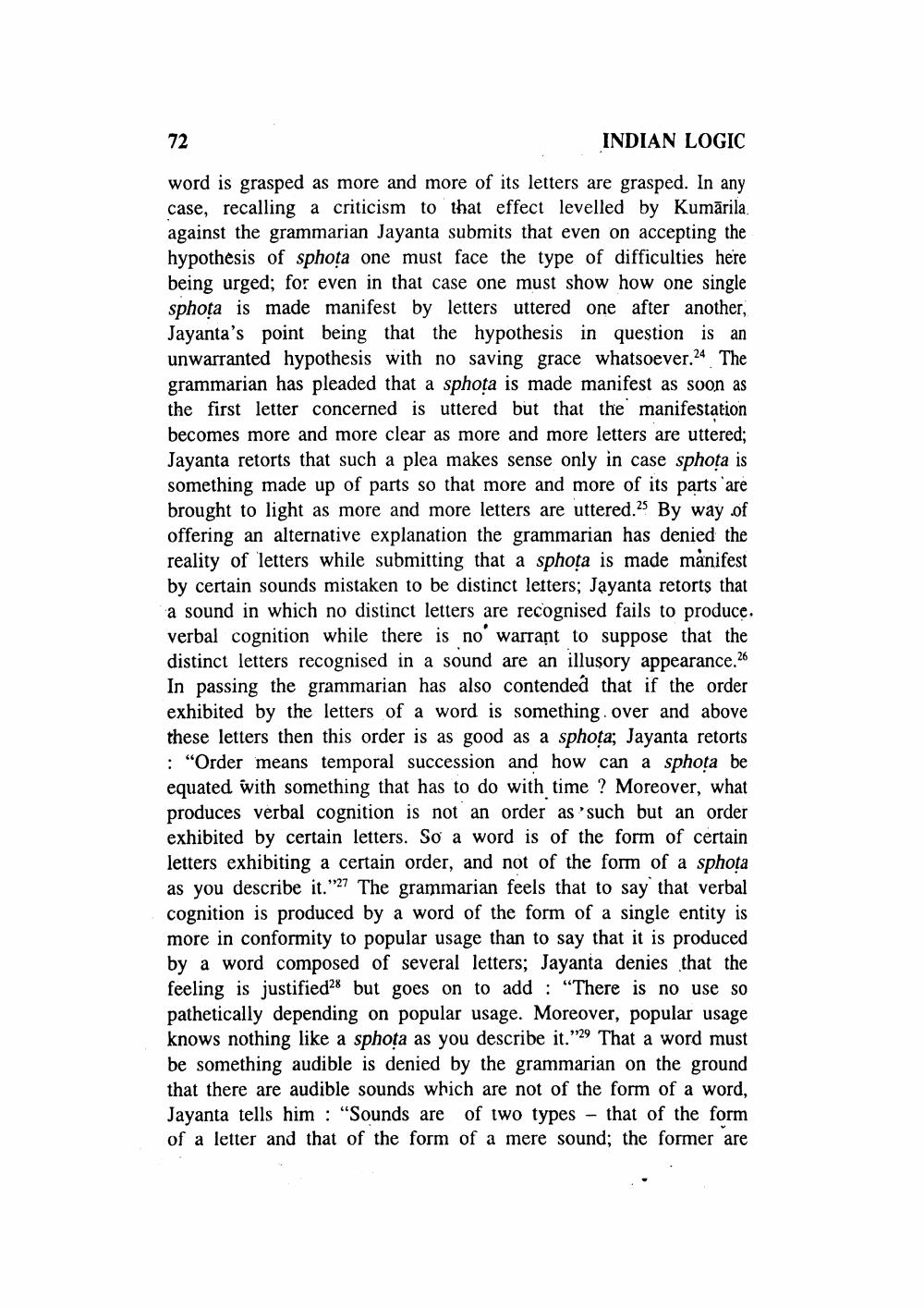________________
72
INDIAN LOGIC
word is grasped as more and more of its letters are grasped. In any case, recalling a criticism to that effect levelled by Kumārila. against the grammarian Jayanta submits that even on accepting the hypothesis of sphoța one must face the type of difficulties here being urged; for even in that case one must show how one single sphota is made manifest by letters uttered one after another, Jayanta's point being that the hypothesis in question is an unwarranted hypothesis with no saving grace whatsoever.24 The grammarian has pleaded that a sphota is made manifest as soon as the first letter concerned is uttered but that the manifestation becomes more and more clear as more and more letters are uttered; Jayanta retorts that such a plea makes sense only in case sphota is something made up of parts so that more and more of its parts are brought to light as more and more letters are uttered.25 By way of offering an alternative explanation the grammarian has denied the reality of letters while submitting that a sphota is made manifest by certain sounds mistaken to be distinct letters; Jayanta retorts that a sound in which no distinct letters are recognised fails to produce. verbal cognition while there is no warrant to suppose that the distinct letters recognised in a sound are an illusory appearance.26 In passing the grammarian has also contended that if the order exhibited by the letters of a word is something over and above these letters then this order is as good as a sphota; Jayanta retorts : "Order means temporal succession and how can a sphota be equated with something that has to do with time ? Moreover, what produces verbal cognition is not an order as 'such but an order exhibited by certain letters. So a word is of the form of certain letters exhibiting a certain order, and not of the form of a sphota as you describe it."27 The grammarian feels that to say that verbal cognition is produced by a word of the form of a single entity is more in conformity to popular usage than to say that it is produced by a word composed of several letters; Jayanta denies that the feeling is justified28 but goes on to add : "There is no use so pathetically depending on popular usage. Moreover, popular usage knows nothing like a sphota as you describe it."29 That a word must be something audible is denied by the grammarian on the ground that there are audible sounds which are not of the form of a word, Jayanta tells him : “Sounds are of two types - that of the form of a letter and that of the form of a mere sound; the former are




